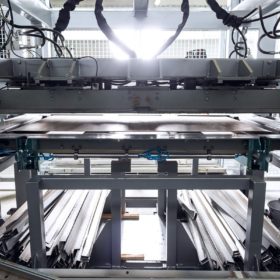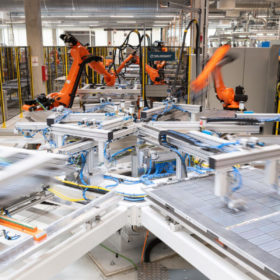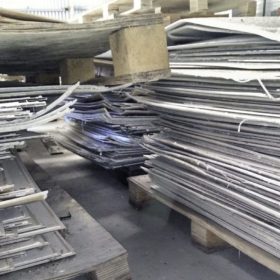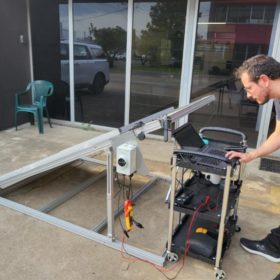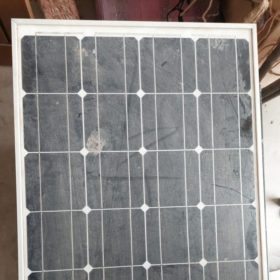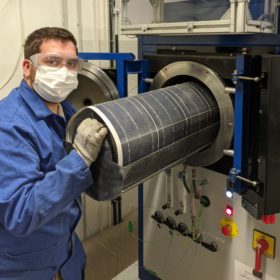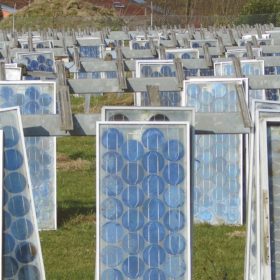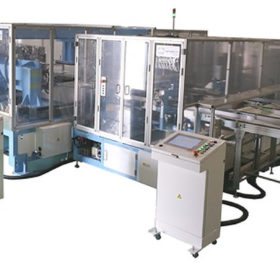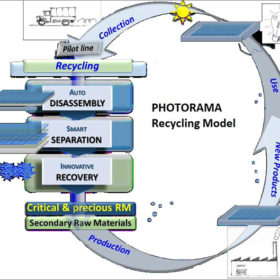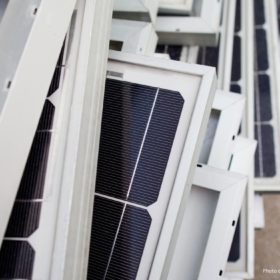New industrial plant concept for end-of-life PV panel recycling
Italian startup Tialpi is developing a process to recycle end-of-life solar panels that promises to recover 100% of a PV module’s weight. The new plant design is currently being tested at the company’s facility in the Italian northern province of Biella.
Solarwatt obtains ‘cradle-to-cradle’ certification for its glass-glass solar modules
The ‘cradle-to-cradle’ certification is considered a globally recognized holistic product quality standard. The assessment is made for five categories: material health, recyclability of materials, energy management and CO2 emissions, water management and social responsibility
Recycling options for PV panels, batteries could drive circular economy, says NREL
Renewable hardware that lasts longer and uses fewer materials could bolster recycling efforts and help to build an effective circular economy for solar and battery technologies, says the US National Renewable Energy Laboratory (NREL).
About one-third of disused PV panels fit for reuse, says Australian consortium
Reclaim PV Recycling and the Circular PV Alliance (CPVA) have have agreed to jointly develop standards and testing procedures to support the reuse and resale of solar panels in Australia. Reclaim PV recently discovered that more than 31% of the solar panels collected in the Australian state of Queensland could be considered for reuse, rather than recycling.
Roadmap for solar module recycling in Bangladesh
Bangladesh currently does not have a recycling center for PV module recycling. But according to a group of local scientists, the country could evolve into a regional hub for PV waste recycling if proper guidelines are implemented.
New PV module recycling tech from France
French start-up Rosi Solar has developed an industrial solution claimed to be capable of recovering high purity silicon, silver and copper contained in end-of-life PV modules. The company’s technology is based on a pyrolysis process that makes it possible to isolate the different metals from the cells.
European Court of Justice: Solar manufacturers not liable for waste costs for panels shipped to EU before Aug. 2012
A preliminary ruling by the European Court of Justice states panel makers should not be responsible for electrical waste management costs in a seven-year period as the rules in place before the EU’s WEEE directive entered force, in 2012, permitted member states to place the obligation on panel users instead. The resulting change in law, in some states, cannot be applied retroactively, under EU legal rules.
Solar module disassembly equipment from Japan
Developed by Japanese PV equipment provider NPC Incorporated, the solar module disassembly line is claimed to enable the reuse of frames, junction boxes, intact broken glass, solar cells and EVA sheets.
European consortium develops pilot line for complete PV module recycling
A European consortium consisting of Italian energy agency Enea and the French Alternative Energies and Atomic Energy Commission, among other entities, has developed a plan to build a low-emissions pilot line to recover critical and precious metals such as silicon, indium, gallium and silver. The line will be designed to reintroduce new materials and new products into the production cycle.
End-of-life management of solar PV waste in India
A new study proposes an ‘extended producer responsibility’ regulatory framework for end-of-life solar PV management in India.
